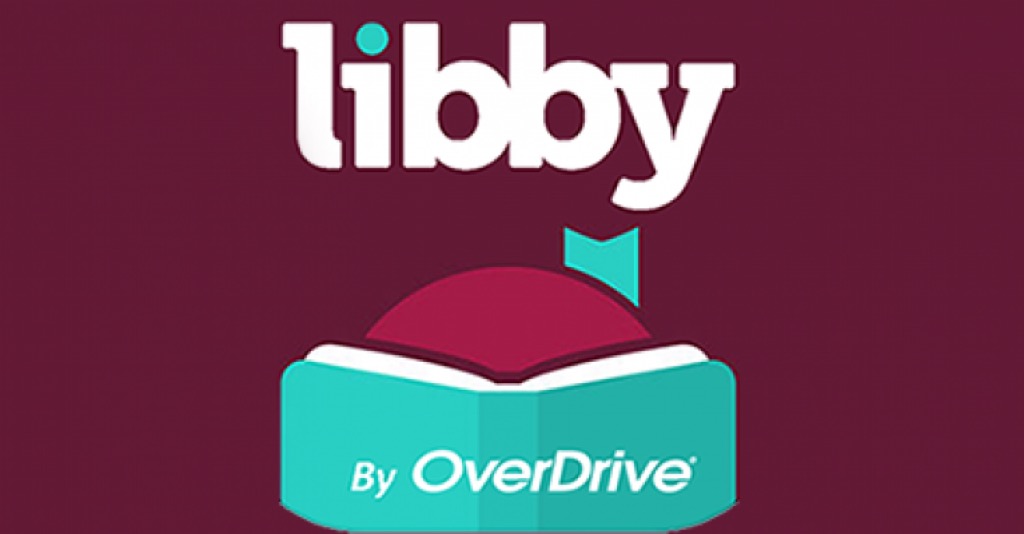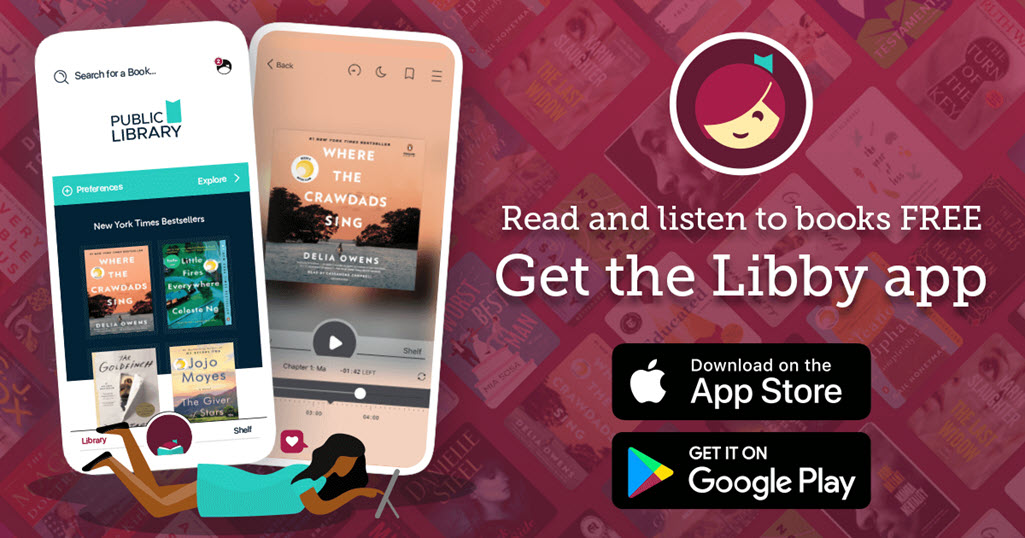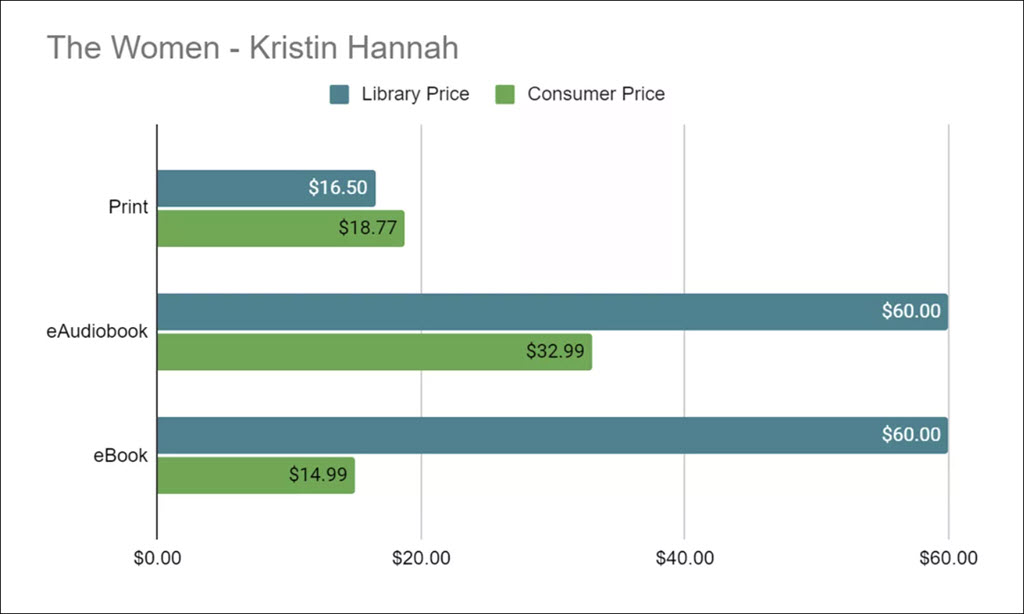
You can read almost any book in print for free, new or old, using an app named Libby.
It’s legal! In fact, it’s encouraged.
Maybe I’m not telling you anything new. Lots of people use Libby. If you know, you know.
But if you aren’t familiar with Libby, this might rock your world and I’ll be your best friend for being the first one to tell you.
Libby is your connection to the public library. Remember the library? The building you haven’t been to in twenty or thirty years, the one you couldn’t have sworn is still there? Good news: it’s still there and it’s adapting to the digital world more cleverly than you realized.
The key takeaway: Your public library lends digital ebooks and audiobooks.
I’ll give you a quick overview of Libby – but really, it’s easy and free and the best thing to do is just get started now that you know about it. Then we’ll look behind the scenes, where the business side of public libraries is shocking and far different than you expect.
TL;DR - Libby in a nutshell
Libby is a free app from parent company OverDrive. Anyone with a library card can use it to borrow ebooks from their local public library for free. The books can be read on a computer at https://libbyapp.com/, or on a tablet or phone with the Libby app, or they can be delivered to your Kindle.
If a book is new or popular, you may be placed on a waiting list. You’ll be notified when you get to the front of the line.
The books are checked out for a set length of time. You can usually renew them with a click. Again, the length of time you can keep a book may be more or less depending how new or popular the book is.
There’s more, of course. Libby has access to a huge number of audiobooks. It’s an alternative to Audible, typically with different recordings. Your library might also offer magazines, comics, and graphic novels.
You need a library card to get started with Libby. Not some digital token – I’m talking about the physical card, the one that you remember from the days when physical cards still existed. Most libraries will require an in-person visit to get that card. Yes, I’m serious, you’ll have to go to the library. Just once! Jeez. Be nice. You might find it’s far more attractive and cleaner and better lit than you expect. And librarians are awesome people.
No fees, no fuss, convenient free access to all the books you can read. That’s the Libby story. Some of your local tax dollars pay for the public library. This is how you can use the resources your taxes contribute to.
Let’s follow the path of those tax dollars.
The business of public libraries: your tax dollars at work
Libraries are perpetually underfunded, like public schools and so many other things in the public sphere. But if you’ve thought of libraries in the last twenty years, you’ve probably also instinctively felt that libraries are irrelevant and obsolete in an online world where knowledge is available to everyone on the internet.
Surprise! Libraries have evolved when you weren’t looking. Libby is the best example of how libraries are leveraging the digital world to support education and make books widely available.
But there’s much more.
Libby has expanded access to library services for house-bound seniors, disabled individuals, and anyone who cannot physically visit the library frequently.
Do you have a phone, tablet, or computer? Good for you. Not everyone does. Libraries have computers for anyone to use, and 95% of them offer digital literacy training to make online services accessible to people who might not otherwise have the means or skills to use them.
Do you have internet service where you live? Bless your heart. Libraries offer free public wifi for the significant portion of the population that doesn’t have it at home.
Homeless people have phones. Shame on you if you think that sounds like a luxury. Phones are a lifeline for calling for help in an emergency – a health crisis, to report a crime, or to call 911. Phones are required for accessing resources and managing appointments – doctors, social workers, shelters, food banks, health clinics. Phones are required for job searching and employment.
Public libraries are a common and widely used place for homeless people to charge their phones. Libraries have power outlets available for public use. I had one of those forehead-slapping moments when I realized what a difficult problem that would be for someone on the street. It sounds like a simple thing but it is literally a life-changing service for the people who use it.
When extreme weather happens, libraries are frequently among the designated cooling/heating centers where people can survive.
Your tax dollars at work! But, I hear you say, surely libraries don’t need as much money as they used to when they had to buy all those hardcover books. Now they get all the books in the world for free, right?
Not so fast, bucko.
The business of Libby: licenses are exorbitantly priced
Licenses for ebooks are exorbitantly priced. Each library pays 3-4 times what an individual would pay for an ebook or audiobook.
And the library doesn’t own the ebook. It gets a license that expires after one or two years – or maybe it expires after a certain number of checkouts. Either way, libraries are effectively renting digital books, not buying them.
The most popular library ebook in 2024 was The Women by Kristin Hannah.
The hardcover book costs about $15.
Each license from OverDrive/Libby for The Women costs $60 for an ebook that can be loaned to one person at a time. After two years, the licenses expire and the library can’t lend the ebook any more without more money for more licenses.
To meet the high demand, the Spokane public library estimated it would have to spend $21,000 to acquire enough licenses for The Women to satisfy the hold list.
Prices have been increasing far beyond the rate of inflation in recent years. The Spokane library already allocates over a third of its annual materials budget to OverDrive content.
Each public library makes its own budget decisions. The selection of books that you see in Libby depends on choices made by your local public library as it struggles to manage its budget in the face of predatory pricing models.
But I hear you ask – why do libraries have to deal with predatory pricing?
Trigger warning: here’s where the story gets even darker.
The business of OverDrive: late-stage capitalism at its worst
OverDrive is a privately owned for-profit corporation. It buys the digital distribution rights of works directly from publishers, then sells the lending rights to libraries.
It sets expensive lending agreements for public libraries and profits directly from tax dollars.
OverDrive was acquired in 2020 by KKR, a giant investment firm. Private equity firms like KKR are single-mindedly focused on extracting value from companies they acquire for the benefit of investors. They have little interest in libraries or end users. Everything is about increasing profitability, whether that means raising prices, cutting costs, or eliminating competition.
As a private equity firm, KKR’s entire business model is based on acquiring companies, improving their profitability, and then selling them for a significant profit. It’s not a question of if KKR wants to flip OverDrive, but rather a question of when and how.
The details of KKR’s acquisition of OverDrive are not public. It’s likely that KKR did a leveraged buyout, saddling OverDrive with debt. It’s not a coincidence that KKR was involved in the leveraged buyout of Toys R Us when that strategy went disastrously wrong and destroyed the company.
Equity firms have little interest in the long term health of leveraged buyout targets; the goal is to artificially increase profitability in the short term, then flip the company to a new buyer. Typically KKR flips companies 5-7 years after acquisition. It has spent five years driving prices up for libraries, putting us squarely in the window where OverDrive may be shopped around so KKR can cash out.
One more step on the road to eliminating competition: two years ago, KKR acquired Simon & Schuster, one of the few remaining major publishers. That means KKR controls both the supply of books and the primary distribution channel. It can force prices up for libraries because it is literally negotiating with itself on the back end.
Federal funding for libraries is being slashed
There’s one more reason that budgets for public libraries are running on empty.
The Trump administration is slashing library funding. There have been executive orders targeting the Institute of Museum and Library Services, the primary federal funding agency for libraries. The GAO has begun blocking federally approved library and museum funding. Grants to states through IMLS are threatened, putting critical programs and services at risk in every state.
Libraries already face immense financial pressure from the high and continually rising costs of e-books and audiobooks through platforms like Libby, and reduced federal support will severely exacerbate these challenges.
With less funding, libraries will acquire fewer copies of ebooks and renew fewer expired licenses, resulting in even longer hold queues and less access to highly sought-after books. Collections will be less diverse as libraries focus on best-sellers. Cuts will impact libraries’ efforts to provide equitable access to digital resources for people facing economic, educational, or physical barriers to information. Core services will be threatened.
Two things are both true.
Libby is great. Read more books.
The world sucks. Late-stage capitalism combined with the authoritarian takeover of our country and the collapse of democracy is hurting us and the pain will only increase.


